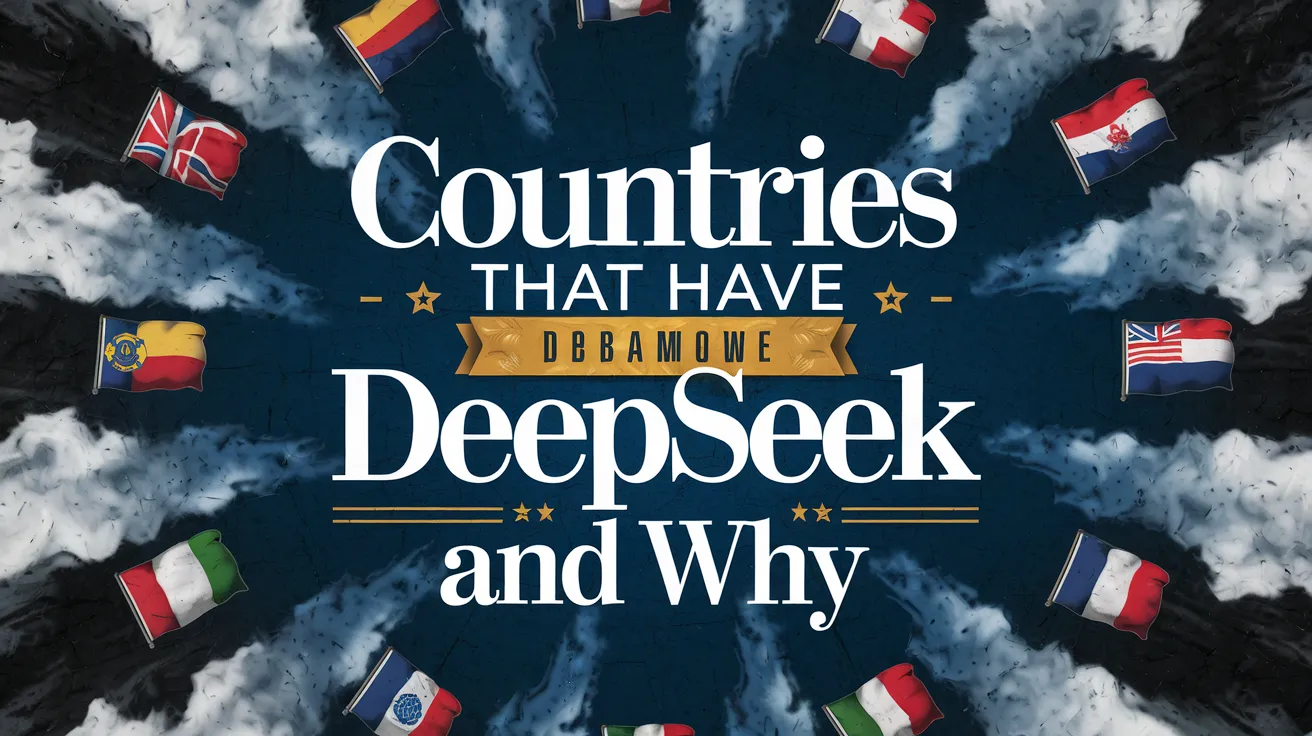Countries That Have Banned DeepSeek and Why

Recently, government agencies from various countries, including South Korea and Australia, have enacted bans on the Chinese artificial intelligence startup DeepSeek’s AI chatbot program, primarily directed toward government employees. The decision stems from security concerns regarding the technology and uncertainties surrounding user data management.
Potential Further Bans
As concerns mount, the United States is reportedly considering similar restrictions. According to media reports, officials from the U.S. government may also block DeepSeek’s AI capabilities from mobile devices used by government personnel. Security concerns are central to these discussions, echoing the sentiments expressed by authorities in other nations.
Overview of DeepSeek
DeepSeek, established in 2023 and headquartered in Hangzhou, China, was founded by entrepreneur Liang Feng. Its launch of the DeepSeek R1—a free AI chatbot mimicking functionalities similar to OpenAI’s ChatGPT—gained swift traction, and its app quickly rose to the top of the Apple App Store chart. Despite its rapid popularity, this ascent has overshadowed critical discussions regarding its security implications.
Security Concerns at Play
Countries that have implemented bans express worry over the security risks associated with DeepSeek’s software. There are significant apprehensions about how user data is handled, especially given reports that suggest Chinese AI companies may operate under certain laws that could potentially allow for government surveillance or data harvesting.
Details on Bans and Reactions
Current bans include:
- United States: NASA has blocked the software from its systems, and additional government agencies may follow suit following warnings about potential risks.
- South Korea: The Ministry of Trade has temporarily prohibited DeepSeek on its employees’ devices, citing security concerns.
- Australia: An official directive has prohibited the use of DeepSeek across all government devices.
- Italy: The Italian Data Protection Authority has restricted DeepSeek’s data processing due to a lack of information about data usage.
- Taiwan: Government departments have also blocked the program over similar security concerns.
Implications of the Ban
Countries that have enacted these measures claim their actions are a necessary precaution against potential national security threats. Given that DeepSeek collects a variety of user data, including personal contact details, chat histories, and technical device information, concerns over surveillance and unauthorized data sharing loom large.
Comparative Analyses with Western Companies
Experts point out that while Western tech companies also collect user data, the perceived differentiation lies in the belief that Chinese firms might be more directly integrated with government interests, raising the stakes from a security perspective. The prevailing sentiment among Western governments is that data from these companies could be misused for espionage and influence operations.
The implementations of bans on DeepSeek encourage wider discourse about data management and national security in an increasingly digital era. As AI technologies continue to evolve, balancing innovation with ethical considerations and security will remain a critical challenge in global governance.